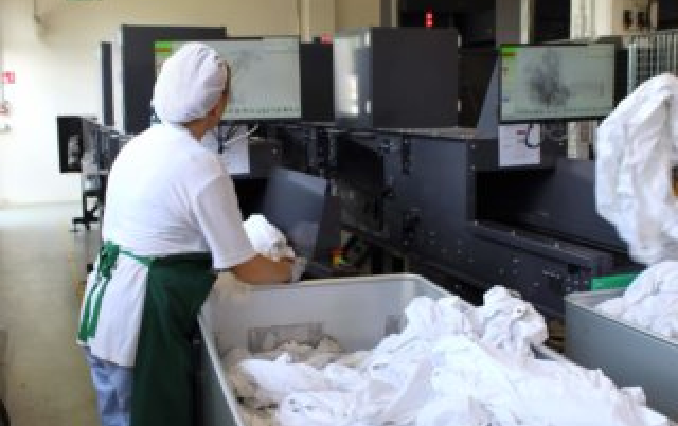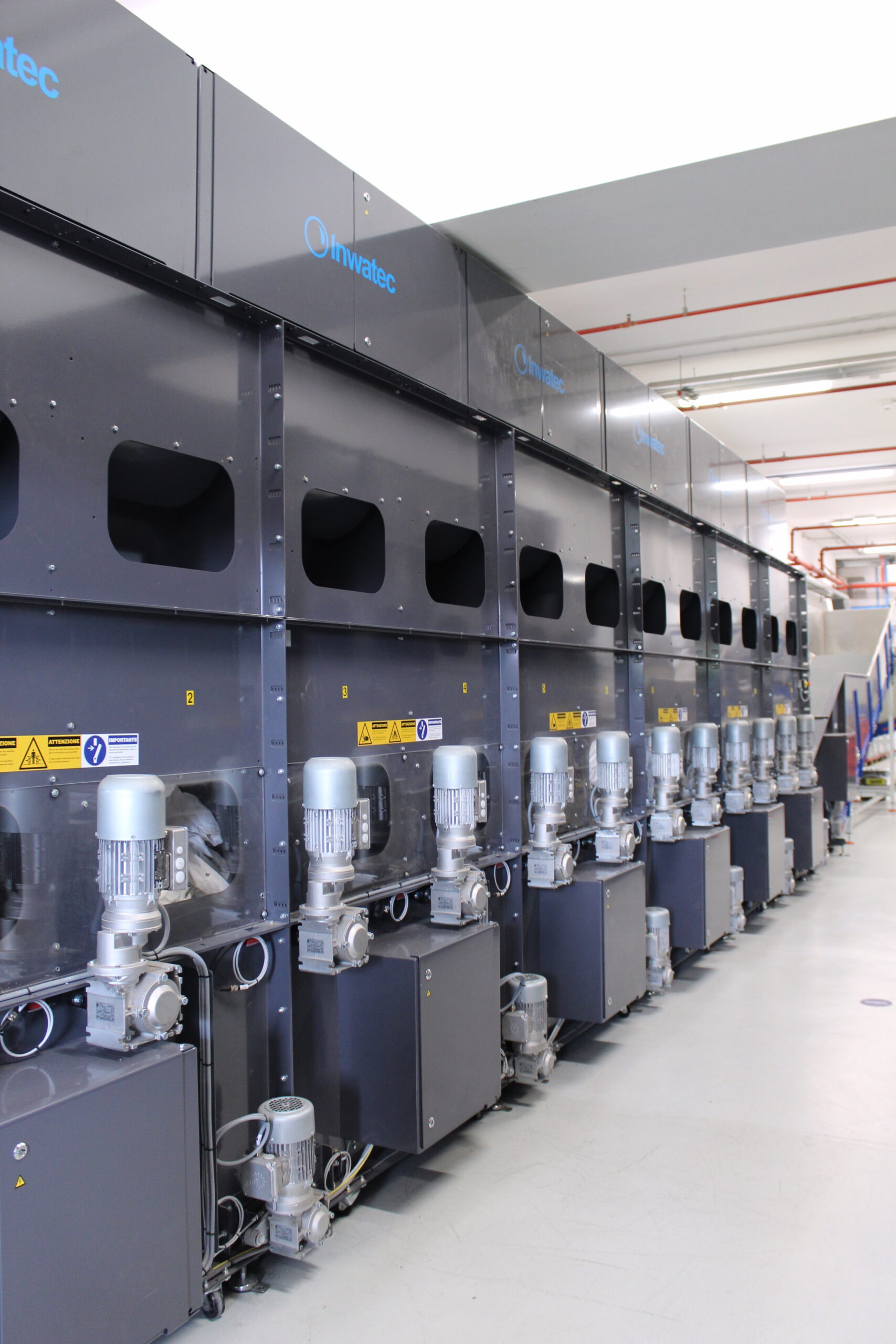Different garments require various treatments, and because of that, Alsco Padova has increased focus on traceability in their laundry. To overcome the most significant hurdles, Alsco has invested in more technology.

Alsco, in Padova, Italy, has customers from many different industries, such as food, automotive, and pharmaceutical companies. Common to all of them is that they demand high efficiency and traceability.
That’s why the management at Alsco was very interested when they heard how technology could solve the challenges using X-ray, RFID reader, and automatic sorting says Tech Manager Assistant, Alsco Padova, Mario de Cristofaro.
With the ODIN X-ray scanner, every garment is automatically checked for foreign objects that could destroy machinery or laundry loads.
“Our customers ask for better efficiency in the division of their clothes and traceability of washing procedures. And this is now possible with the system from Inwatec,” Mario de Cristofaro explains.
Alsco traces every single piece of clothing from it arrives at the factory until it is delivered to the customer again. According to Production Manager Marco De Grandis, the new technology has given Alsco better opportunity to provide customers with the best possible service, due to the release of human resources for other tasks.
“Our biggest challenge has been foreign elements in the pockets. Especially earplugs, lighters, screws, bolts, and much more. With our x-ray machine, we find most of it, and the number of employees was almost halved on the soiled side sorting,” says Marco De Grandis.
In addition to finding foreign elements, the new equipment ensures that all garments are washed according to the exact instructions.

“We sort in the clothes in a system with 24 silos, and currently we run with 14 different programs for colored clothes and six different washing programs for white garments. With our new setup, where the clothes are automatically sorted with RFID chips, we ensure that the clothes get the right treatment required by the specific customer,” Marco De Grandis explains.
According to Marco De Grandis, 20,000 pieces of clothing are processed per day at the Padova laundry. Still, the plans for the future are higher, which is why the company is working on expanded use of automation solutions:
“As it is right now, our bags are emptied manually, and the clothes are separated manually. But we are working to optimize the system so the bags will be automatically emptied onto a conveyor belt from where it is processed mechanically. We will always need employees, but we hope that we can move most of them from the soiled side sorting to other positions in the laundry,” Marco De Grandis says.

